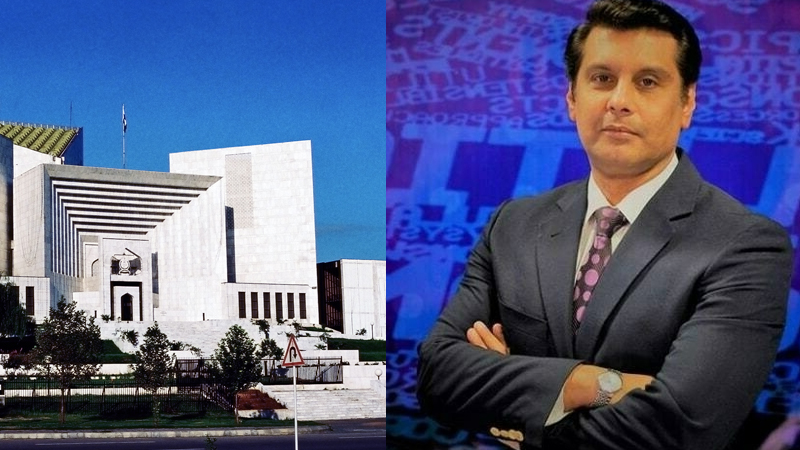ISLAMABAD: The Supreme Court (SC) rejected the investigation report of the Special Joint Investigation Team (JIT), formed to investigate the murder of senior journalist Arshad Sharif.
The JIT report was presented to the CJP’s Chamber. Details of the inquiry conducted in Kenya and the UAE are included in the report.
The team landed in Pakistan last Monday after concluding its investigation in Kenya and UAE.
Read more: Supreme Court To Hear Arshad Sharif’s Suo Motu Case Today
Supreme Court rejected jIT report
Five-member Supreme Court panel led by Chief Justice of Pakistan (CJP) Umar Ata Bandial rejected the JIT report. Moreover, the SC panel termed the report as a story of ‘failures’ only.
CJP questioned Kenya’s decision to stop “cooperating” with Pakistan in the murder of Arshad Sharif during today’s hearing. CJP Bandial said, “Foreign Office should look into the case and brief the state on the matter.”
The assassination of Arshad Sharif had two crucial components, one internal and one international, according to CJP Justice Umar Ata Bandial. The chief judge further directed the JIT chief and the extra attorney general to investigate who leaked the case’s fact-finding report.
The JIT chief told the SC bench that the Kenyan authorities had not given them Arshad Sharif’s iPhone and iPad. Therefore, JIT had not found any evidence that would allow it to draw any conclusions about the case.
While rejecting the JIT findings, the SC requested assistance from the UN. The CJP questioned the delegate from the Foreign Office, “How much time is required to request aid from the UN?”
Since the issue involves collaboration between the two countries, it is impossible to specify a certain time, the FO spokesperson said.
Arshad Sharif’s murder case was then postponed by the SC until the first week of March. While a month was given to the Foreign Office to decide when to ask the UN for assistance.
The federal government constituted a new JIT team on 8 December 2022. This team was formed to investigate the journalist’s murder.
JIT included members from FIA, IB, Inter-Services Intelligence, and the Islamabad Police. However, members were DIG Intelligence Branch Sajid Kiyani, FIA’s Waqarauddin Syed, and DIG Headquarters. Moreover, Owais Ahmed, Military Intelligence’s Murtaza Afzal, and ISI’s Muhammad Aslam were included.


